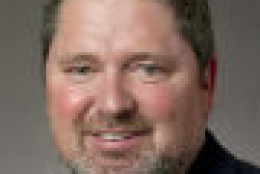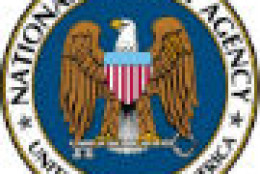Hubbard Radio Washington DC, LLC. All rights reserved. This website is not intended for users located within the European Economic Area.
On Air: Federal News Network
ASMC The Business of Defense
-
Federal employees are a prime target for hackers and other bad guys when on vacation. Learn 12 tips for keeping you and your federal-issued laptop safe while out of the office this summer.
August 01, 2014 -
Federal employees are prime targets for hackers. If not properly secured, the computers and mobile devices they carry could open up their agency's network to malicious attacks. Devices can be especially vulnerable when you're on vacation and it's easy to let your guard down. Jerry Irvine is the chief information officer and a partner of Prescient Solutions. He told Tom Temin and Emily Kopp on the Federal Drive what feds should be aware of when they're traveling.
July 31, 2014 -
The Environmental Protection Agency is in the dark with its cloud contracts. EPA's Inspector General says the agency doesn't know how many cloud contracts it has, nor how secure they are. For an investigation, the IG chose a contract that met the definition of a cloud system. But the EPA didn't report it as a cloud contract because it didn't have "cloud" in the description. The agency's also using a sub-contractor that's not compliant with the Federal Risk and Authorization Management Program. The IG says the company might not have the capability to access its cloud system hardware so the office can investigate. The EPA didn't even know it was buying a cloud system at the very start of the contracting process. The IG says the agency wasn't aware cloud computing was part of the system it was procuring.
July 31, 2014 -
This fall, five more schools will offer an intensive science, technology, engineering and math (STEM) education track to students who are serious about federal cybersecurity careers. These Centers of Academic Excellence are overseen jointly by the National Security Agency and the Homeland Security Department. Schools have to pass a meticulous screening process to qualify for the program. Steve LaFountain is dean of the NSA's College of Cyber. He joined Tom Temin and Emily Kopp on the Federal Drive to discuss the new move.
July 31, 2014 -
The last surviving member of the crew that dropped an atomic bomb on Hiroshima has died. Theodore VanKirk, 93, passed away Monday in Stone Mountain, Georgia. The B-29 Superfortress aircraft dropped "Little Boy," the world's first atomic bomb, over the Japanese city of Hiroshima on Aug. 6, 1945. The bomb killed 140,000 in Hiroshima. Three days later, 80,000 died in Nagasaki in a second bombing.
July 31, 2014 -
North Korea's frequent testing of ballistic missiles is of great concern to the Pentagon. The testing of ballistic missiles and other weapons is up sharply compared to last year. Adm. Samuel Locklear, who heads the U.S. Pacific Command, is concerned that the regular testing may lull some into thinking it's not such a big deal. But frequent threats to attack the U.S. may prevent that from happening.
July 30, 2014 -
Just as the Pentagon depends on DARPA to keep the military on the cutting edge of science and technology, so too, does the Department of Homeland Security have an ARPA to keep DHS agencies out on the technological edge. On this edition of AFCEA Answers, Dr. Adam Cox, Acting Director of the Homeland Security Advanced Projects Research Agency (HSARPA) discusses the similarities - and the differences - between his organization and DARPA. He explains how "tech foraging" allows HSARPA to meet customer needs while saving taxpayers a buck or two. And he offers an unclassified look at some forward thinking technological solutions now being developed for transportation and border security.
July 30, 2014 -
The National Association of Corporate Directors' (NACD) Handbook on Cyber-Risk Oversight, introduced Tuesday at the National Press Club in Washington, outlines five key principles that aim to move forward the collaborative cybersecurity effort.
July 29, 2014 -
How will the Budget Control Act impact national security? "We will no longer be immune from coercion," said Joint Chief's Chairman General Martin Dempsey, speaking at the Aspen Security Forum. Dempsey borrowed the original quote by Creighton Edwards in 1974 to illustrate concerns about how budget cuts will affect the U.S. Moving forward, Dempsey said, "if we stay on this path, we will no longer be as immune as you think we should be."
July 29, 2014






